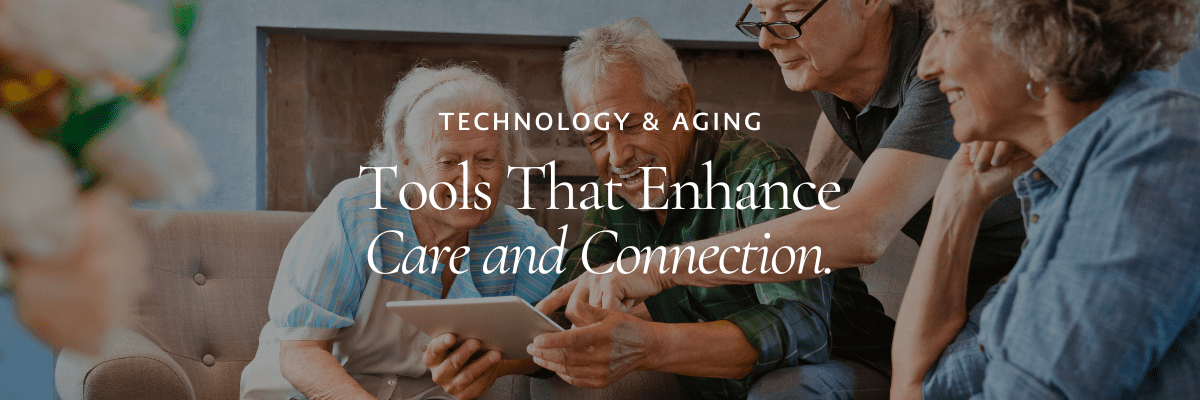As we grow older, some changes happen gradually—so slowly, in fact, that we don’t always notice them. Hearing loss is one of those changes. And yet, its impact can be profound: straining communication, increasing isolation, and even contributing to cognitive decline.
We believe that hearing health is a key part of aging well. Whether you’re navigating your own hearing changes or supporting an aging loved one, early awareness and proactive support can make all the difference.
Understanding Age-Related Hearing Loss
Presbycusis, also known as age-related hearing loss, is a common condition that affects approximately one in three adults over the age of 65. It typically occurs gradually and can affect both ears equally. Often, high-pitched sounds become more difficult to hear, and background noise makes conversations even more challenging.
Common Signs of Hearing Loss in Older Adults:
- Frequently asking others to repeat themselves
- Turning up the volume on the TV or radio
- Trouble hearing phone conversations
- Withdrawal from social situations
- Difficulty hearing in noisy environments
- Complaints that others are “mumbling”
Hearing loss may also contribute to depression, loneliness, and even an increased risk of falls or cognitive decline.
Proactive Tips to Protect and Support Hearing Health
Just like vision, hearing health benefits from early action. Here are several strategies for maintaining or supporting hearing in older adulthood:
1. Schedule Regular Hearing Checks
- A hearing evaluation with an audiologist can detect problems early, even before symptoms become noticeable.
- Annual exams are especially important if there’s a history of hearing loss in the family or exposure to loud environments.
2. Limit Exposure to Loud Noises
- Use hearing protection during activities such as lawn mowing, attending concerts, or using power tools.
- Keep the volume low on headphones and TVs, especially if using them for extended periods.
3. Address Earwax Buildup
- Earwax can cause temporary hearing loss if it builds up. Never use cotton swabs inside the ear canal. A medical professional can safely remove excess buildup.
4. Avoid Smoking and Manage Chronic Conditions
- Smoking and certain health conditions, such as diabetes or high blood pressure, can damage the blood vessels in the ear and contribute to hearing loss.
- Managing overall health helps protect auditory function.
5. Embrace Technology When Appropriate
- Modern hearing aids and assistive listening devices are more discreet and effective than ever before. Early adoption can significantly enhance the quality of life.
How Arosa Supports Older Adults with Hearing Impairment
For seniors aging at home—especially those living alone—hearing impairment can increase vulnerability and reduce engagement. Arosa’s integrated model of Care Management and Caregiving helps bridge that gap with compassionate, informed support.
Care Management Advocacy
Arosa Care Managers help coordinate hearing assessments, accompany clients to audiology appointments, and ensure that follow-up appointments or treatments (such as hearing aid fittings or cleanings) are not missed. We also help families navigate options and understand next steps.
Safety and Communication Strategies
In-home Caregivers are trained to speak clearly, use visual cues, and adjust their communication style to support clients with hearing loss. We also help implement safety systems, like amplified doorbells, vibrating alarms, or captioned phones, to reduce risk and enhance confidence.
Nutrition and Medication Support
Certain medications can affect hearing. Care Managers work with healthcare providers to review prescriptions and side effects. We also support healthy eating habits that promote circulation and reduce inflammation, which can help preserve hearing.
Creating a Hearing-Friendly Environment
Caregivers help reduce background noise during conversations, improve lighting so clients can lip-read more easily, and arrange furniture to encourage eye contact. These simple steps go a long way in improving connection.
Reducing Isolation, Rebuilding Confidence
Hearing loss often causes people to pull back socially. Our Caregivers offer meaningful companionship, engage clients in conversation and hobbies, and encourage participation in the community. Human connection is always within reach.
Arosa Can Help You Hear—and Be Heard
We don’t see hearing loss as just another challenge of aging. We see it as an opportunity to intervene early, make empowered choices, and preserve what matters most: communication, connection, and confidence.
Whether it’s care planning, support at home, or navigating new hearing devices, Arosa can guide your family through it all with empathy, clarity, and expertise.
To learn more about how we can support your family, Click Here or call 866-462-7672.



